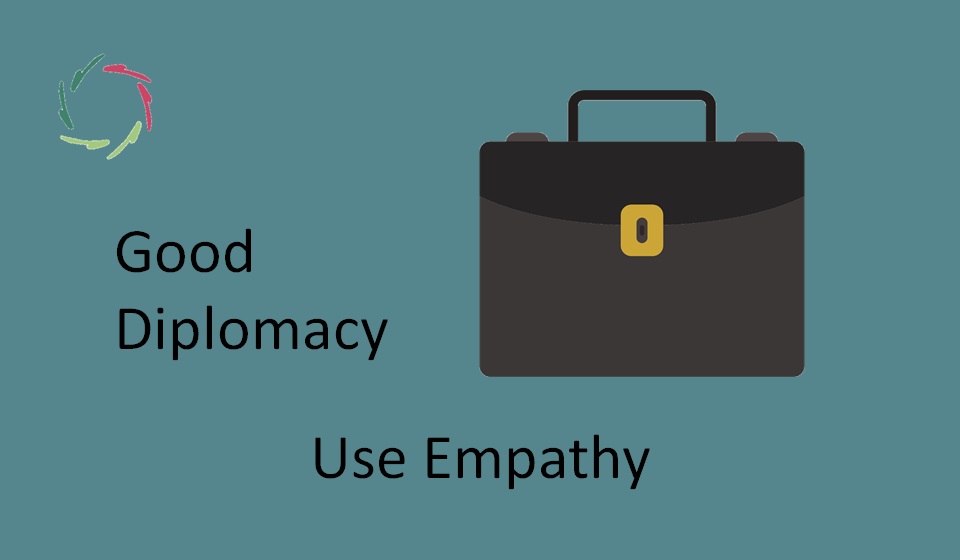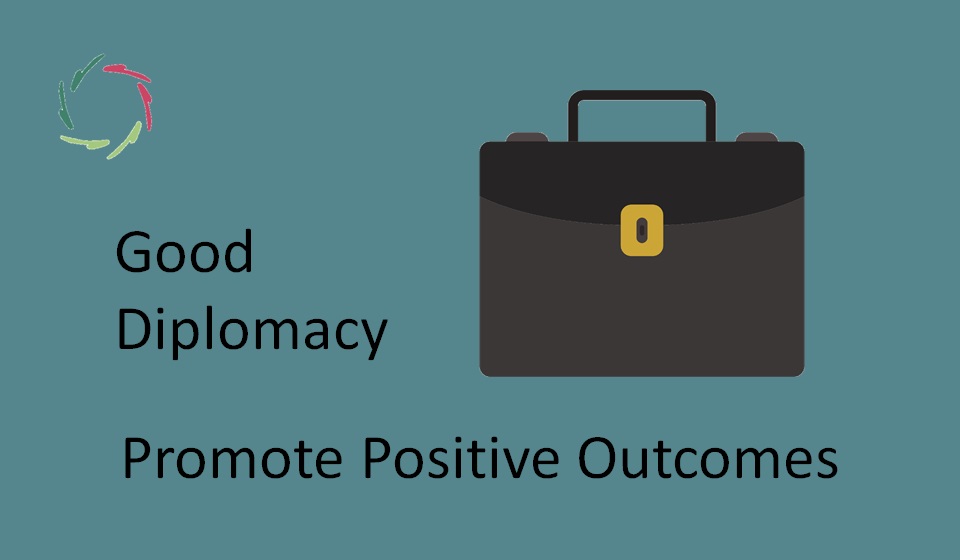Use Empathy: Try to See the Situation from the Other Party’s Perspective

By using empathy in diplomatic interactions, diplomats and negotiators can create a more compassionate and effective dialogue.
Empathy is a powerful tool in diplomacy. By understanding the situation from the other party’s perspective, diplomats can reveal underlying concerns.
―
BEFORE TAKING THIS IN, PLEASE FIRST READ ‘TEN TIPS FOR GOOD DIPLOMACY’!
This is the seventh tip of the series.
―
Key Aspects
Active listening
- Listen carefully to what the other party is saying without interrupting.
- Pay attention to both verbal and non-verbal cues.
Put yourself in their shoes
- Imagine how you would feel in the other party’s situation.
- Example: “If I were facing these challenges, what would be my primary concerns?”
Acknowledge emotions
- Recognize and validate the emotions of the other party.
- Show understanding and respect for their feelings.
Ask open-ended questions
- Encourage the other party to share more about their perspective.
- Use questions like “Can you help me understand your position better?” or “What are your main concerns?”
Express understanding
- Use phrases that show you understand the other party’s perspective.
- Example: “I can see why this issue is so important to you. It affects many aspects of your community.”
Reflect and paraphrase
- Reflect back what you have heard to show that you are listening and understanding.
- Paraphrase their statements to confirm your understanding.
Share personal experiences
- Share relevant experiences that show you can relate to their situation.
- Example: “Our country faced a similar crisis a few years ago. We learned a lot from that experience and would like to share some of those insights with you.”
Avoid judgment
- Approach the situation without judgment or preconceived notions.
- Be open to seeing the issue from the other party’s viewpoint.
Show genuine concern
- Demonstrate that you care about the other party’s well-being and interests.
- Express empathy through your words and actions.
Follow up with actions
- Demonstrate your empathy through concrete actions that address the other party’s concerns.
- Example: “Based on your feedback, we will adjust our proposal to better meet your needs and concerns.”
Examples
Conflict resolution: In a conflict resolution scenario, showing empathy can help de-escalate tensions. For example
- “I understand that this conflict has caused significant hardship for your people. We want to find a solution that addresses your concerns and brings relief to those affected.”
Trade negotiations: During trade negotiations, understanding the other party’s economic pressures can lead to more compassionate agreements. An empathetic response might be
- “I see that you are facing economic challenges and job losses in certain sectors. Let’s work together to find a trade agreement that supports your economy while also benefiting ours.”
Humanitarian aid discussions: In discussions about humanitarian aid, empathy can drive more effective cooperation. For instance
- “We understand that your country is dealing with a severe humanitarian crisis. We are committed to providing the necessary support to help your people recover and rebuild.”


